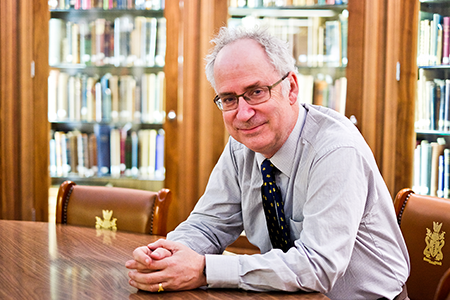Research by an education policy think-tank has shown that much of the extra £250 million a year that the UK’s previous coalition government pledged for Child and Adolescent Mental Health Services (CAMHS) has not reached the front line.
The Education Policy Institute, an independent research body based in London, said this lack of targeted funding is failing sufferers. It pointed out that 75 per cent of adults who develop mental illness first exhibit symptoms in childhood. This underlined the importance of looking after children’s mental wellbeing.

Professor Sir Simon Wessely: the situation is a “national scandal”
The lack of funding may have a big impact on children with autism. This is because many individuals with the condition also have mental health issues.
‘Opportunities missed’
Professor Sir Simon Wessely, President of the Royal College of Psychiatrists, described the situation as a “national scandal”. He added that “opportunities to prevent mental illness from occurring in childhood are being missed because of unacceptably low investment”.
MP and former Shadow Mental Health Minister Luciana Berger is now the president of the Labour campaign for mental health. She also hit out at the lack of investment.
Mental health spending ‘disgracefully low’
She said: “The tiny sums being spent in some areas of the country are disgracefully low, particularly in light of sharply rising need.”
Samantha Francis is managing director and founder of London-based mental health social enterprise Find a Balance. She described the low level of spending on children with mental health in the UK as “appalling and frightening”.
She added: “There are so many personal accounts of parents who feel let down by the current system and watch their children deteriorate due to lack of support.
“This is the reason why Find a Balance targets 8-17 year-olds, as well as 18 years and over, as we recognize that, if addressed earlier in a child’s life, it can prevent more severe mental health issues once the child reaches adult age.”
BAME communities ‘at the more severe end’
Francis is critical of CAMHS for not doing enough to support BAME (Black, Asian and Minority Ethnic) communities effectively. She said that “individuals from these communities are at the more severe end of mental health issues, especially black males, and hence why they make up a disproportionate percentage within mental health homes”.
National Health Service bodies are reportedly spending as little as £2.01 per child on mental health care. This is despite a significant increase in anxiety, depression and other problems among under-18s.
Experts say that exam stress, bullying, body image issues, the negative effects of social media and pressure to succeed are among the key factors behind the increase in mental illness.
Published: 18 November 2016

















